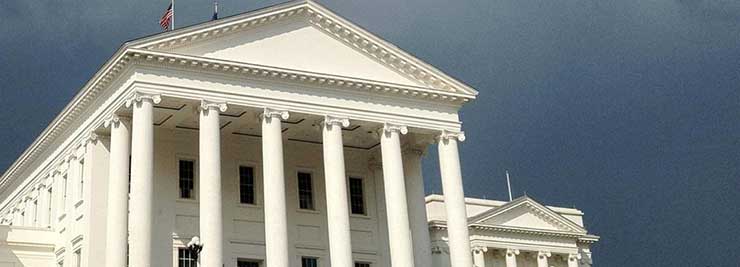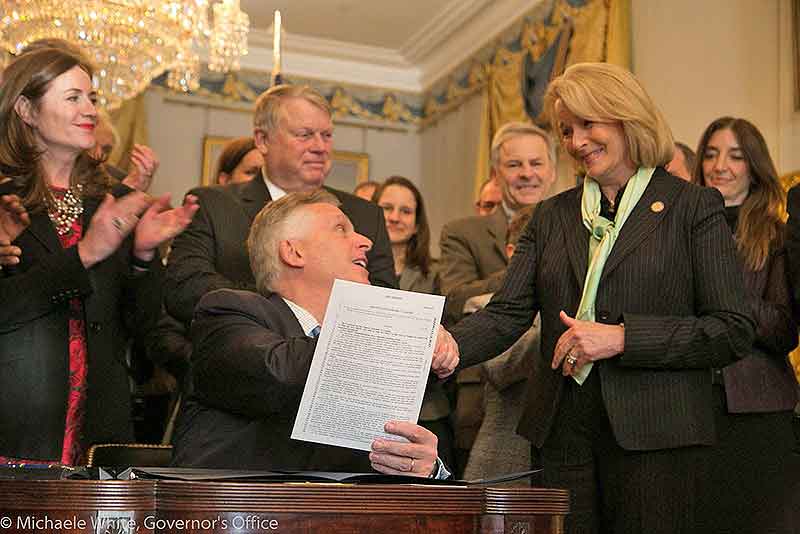The 2016 Session of the Virginia General Assembly is scheduled to end on Saturday, March 12, and there is significant work remaining. Most efforts are now focused on reconciling the House and Senate budgets. The good news is that there is a lot of common ground; both bodies supported much of the Governor’s introduced budget, and have provided substantial increases for K-12 education, higher education and job creation. Some specifics on how to implement certain investments in higher education and job creation remain to be resolved. In my view, the House budget has erected an overly cumbersome screening process for some research and economic development projects that may make it difficult to respond quickly and nimbly to opportunities. Universities, for example, may need to move quickly to attract talent from other states with funding packages that will ensure they will relocate to Virginia; too many bureaucratic hoops may make recruitment more problematic. The same is true for efforts to recruit and retain businesses in the Commonwealth. These issues are likely to be resolved, and I expect the House and Senate conferees will reach agreement on a budget in the next several days.
Challenges remain with the so-called reform of the Certificate of Public Need (COPN) process. The COPN system is designed to protect hospitals from being undercut by medical providers who seek to establish stand-alone clinics offering only the more profitable areas of medical care. This would create greater fiscal uncertainty for hospitals, which might need to charge more for other services in order to continue to provide costly indigent care. A compromise that would have allowed some reforms in exchange for contributions to a fund designed to assist uninsured Virginians fell apart Monday afternoon, but it is worth a careful look in the future. COPN reform represents a significant change in how we provide medical services in the Commonwealth, and deserves thoughtful scrutiny before adoption.
Funding for Planned Parenthood continues to serve as a lightning rod for Republicans who seek to undo Roe v. Wade and undermine reproductive rights. HB1090 would prevent any non-Medicaid money from being provided to Planned Parenthood; this would take away much of its resources for family planning counseling and birth control, the major services it offers. Defunding this organization is a symbol to House Republicans, but I will continue to defend against those efforts.
I recently gave a floor speech about the Coal Tax Credit, which you can watch immediately below.
I also gave a statement on the Republicans’ refusal to reappoint Justice Jane Roush to the Supreme Court of Virginia.
Several of my measures are making steady progress. My bill to allow our own Jefferson Area Board for Aging (JABA) to compete for neighborhood assistance tax credits was passed by both bodies and is being sent to the Governor for signature. The bill that I introduced to make it easier to hold drivers accountable when they pass a stopped school bus (HB915) has been rolled into another measure, and is now in a conference committee on which I serve. I trust we will vote to approve this measure in the next several days. Finally, my bill to give greater flexibility to school divisions addressing challenges for English Language Learners (ELL) was passed by the House. In the Senate, however, the committee simply decided to send a letter to the Board of Education requesting that they study the issues and determine whether the problems which generated my bill should be addressed at the state level or by local school authorities.
Throughout this session, I have greatly appreciated all of the emails and phone calls from constituents providing very useful advice about how I should vote on bills. In most cases, our views have been similar, but even in those cases where we have differed, the input has been critical and makes a difference in how I think about these issues. Please do not hesitate to continue contacting me about the issues before the General Assembly.


